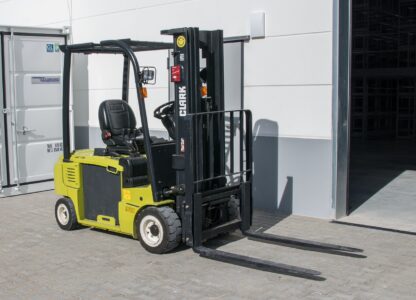
The Occupational Safety and Health Administration has been stepping-up its enforcement efforts recently. Anecdotally, I’m seeing and hearing about more workplace inspections and more citations from OSHA inspectors. Recently, the Eleventh Circuit Court of Appeals issued an opinion that will help employers defend against OSHA citations. See Chewy, Inc. v. U.S. Department of Labor, No. 22-11626, 2023 WL 3713222 (11th Cir. May 30, 2023).
One of OSHA’s favorite weapons is the “general duty” clause. Employers have a “general duty” to provide employees with a safe workplace. See 29 U.S.C. § 654(a)(1). An employer fails this general duty when it: (1) fails to render the work place free of a hazard; (2) the hazard was recognized; (3) the hazard caused, or was likely to cause, death or serious physical harm; and, (4) the hazard was preventable. Ga. Elec. Co. v. Marshall, 595 F.2d 309, 320-21 (5th Cir. 1979). So, if an employee is injured at work, and an employer does not violate a specific safety standard, OSHA will frequently issue a citation for violation of the “general duty” clause.
You would logically think that OSHA would not issue a “general duty” citation if an employer complied with a specific OSHA safety standard. Not so fast, my friend. In the Chewy case, the employer complied with a specific safety standard for forklift safety. Even so, OSHA decided to issue a citation for an alleged violation of the “general duty” clause.
The Chewy case involved “under-ride” accidents which occur when the chassis of a forklift is short enough to can pass under warehouse shelves without colliding with them — such that the driver’s body collides with the shelves. OSHA’s specific safety standards require forklift operators to receive safety training, look in the direction of travel, keep a clear view of the path of travel and maintain a safe speed. See 29 C.F.R. § 1910.178.
Chewy, Inc. complied with those standards but there were still two under-ride accidents within six months. OSHA cited Chewy for violating the “general duty” clause and an Administrative Law Judge upheld that citation.
The Eleventh Circuit reversed. The Court relied upon Department of Labor regulations, an OSHA administrative decision and prior case law to find that “compliance with an applicable safety standard bars general duty liability.” Chewy, Inc., 2023 WL 3713222 at *2. OSHA tried to argue that its specific forklift safety standard did not cover the danger of under-rides. But, the Eleventh Circuit rejected that argument. Because Chewy complied with OSHA’s forklift safety standards, it could not be cited for a “general duty” violation.
This is an important victory for employers. Obviously, employers need to comply with OSHA safety standards. But, they also need to be confident that they cannot be cited if they comply with those standards. If OSHA tries to issue a “general duty” citation to your business, double-check to see if you have complied with any applicable specific safety standards. If so, you may have an additional defense to the citation.